|
In October, my husband and I welcomed a little boy. Our son is a master napper—and his favorite place to nap is most definitely in his parents’ arms. He has a way of passing out with his mouth wide open (a trait of my side of the family) and arms sort of flailed. Since he was born, and more recently, our 6-month-old has been teaching me about trust. When Benjamin is passed out in my arms and begins to stir in his sleep, he opens his mouth in a quivering “O” manner, as if to say, “Put my pacifier back in my mouth, please.” He does not open his eyes. He does not make a noise. It is a simple gesture. He has a desire for his pacifier to be back in his mouth, and trusts that I will, in fact, return the fallen pacifier. He trusts that he is loved, that he is provided for. He does not even need to wake up—he stays in a state of rest despite his request. This image of my son, asking to be cared for and trusting that I will fulfill his needs, makes me think of the prayer at the bottom of the Divine Mercy Image: Jesus I Trust in You. The message of Divine Mercy was given to St. Faustina, a Polish nun. Through revelation and prayer, Jesus communicated to St. Faustina the need for the whole world to understand His love and goodness as evidenced by one of his greatest attributes: mercy. This understanding begs us to trust that His mercies are bigger than our sin, and ultimately, that we are summoned to trust in the love and mercy that the Lord has for us. Jesus says to Faustina and she records in her diary, “‘I am love and Mercy Itself…The soul that trusts in My mercy is most fortunate, because I Myself take care of it.’” (1273) Benjamin’s trust in my love is the personification of belief in Divine Mercy. We are called to radically trust in Our Lord’s mercy and love in the same childlike way that Benjamin trusts me without any sign of doubt. The Divine Mercy message, to which the Church calls the faithful, is to accept our role as children—to have the faith that He will give us what we need. We too must trust in the goodness of Our Father to give us what we need. Is my trust as radical as my son’s? Am I able to completely rest knowing that our Lord desires to shower His grace and mercy upon me? Do I ask for His graces, trusting that He wants my good? On this Divine Mercy Sunday, ask yourself if you believe in the goodness of the Father. Ask for His grace for more trust in His mercy. Ask for more mercy! Reflect on the trust of children as they live in trust, knowing their parents will fulfill their every need. This Easter season, how can we become more childlike and embrace the message of Divine Mercy? Eternal God, in whom mercy is endless and the treasury of compassion — inexhaustible, look kindly upon us and increase Your mercy in us, that in difficult moments we might not despair nor become despondent, but with great confidence submit ourselves to Your holy will, which is Love and Mercy itself. -Closing prayer of the Divine Mercy Chaplet
0 Comments
Monday, April 15th, was a whirlwind at work. My family alerted me to the fire within the Cathedral of Notre-Dame de Paris. I couldn’t watch the coverage, but the texts continued. The spire fell. The roof caved. My heart sank. I called my sister on my way home and we cried together. It felt so strange, we lamented, to cry for a building. Yet this is not just a building. It is something beautiful, historic, cultural, Catholic, French and so much more. It is transcendent – pointing humanity from something to someone. I stepped foot in Notre Dame in May 2017. I remember the experience like it was yesterday. I have visited many beautiful churches – but Notre Dame was in a category unto itself. Outside, the intricate sculptures and mighty yet delicate buttresses entranced me. Inside, my eyes were drawn higher, higher and higher still. I was overwhelmed – surrounded by the magnificent beauty of stained glass and stone and wood. I thought about the men and women who offered their blood, sweat and tears for two hundred years to build this incredible Church. I sensed that their goal was quite simple: to glorify God. Their work revealed just a small fraction of God’s height, depth, beauty, strength, delicacy, and awe. The Cathedral of Notre Dame is not useful, in the sense that our transportation, jobs, and phones are useful. It is not necessary in the sense that water, food, and shelter are necessary for human survival and flourishing. So why are we weeping at its loss? Because we are made for more than utility and necessity. We are made to glorify God – through who we are, how we live, and even what we create. For centuries, the Notre Dame cathedral has lifted us out of the ordinary into the extraordinary – brought us from the human to the divine – helped us glorify God. While we mourn what has been lost – and rejoice over what has been spared – I believe there is an amazing opportunity before us. In the promised rebuild, we have the opportunity to glorify God anew with the time, talent, and treasure of people worldwide. Six weeks ago, ashes were placed on our foreheads to mark the beginning of Lent. They symbolized a call to refocus on what matters most – our relationship with God. In the days after the fire, we see the ashes from a cherished cathedral. Now, we find ourselves in the midst of the Easter Octave. What is the symbol here? We celebrate Jesus’ death and Resurrection, which offers redemption, restoration and renewal to humanity and to the created world. “See I make all things new” (Rev 21:5). The cross doesn’t have the final say and neither does this fire. The solidarity, generosity and prayers offered from around the world are just the start of God bringing beauty from ashes. For more resources to guide you through the Easter season, please click here. **This post was written prior to the Easter Sunday attack in Sri Lanka. Please join us in prayerful solidarity for our Christian brothers and sisters and all affected by this tragedy. We are about to enter into the holiest days of the Church’s liturgical year, the Easter or Paschal Triduum. The Lenten season, our time of preparation, will fade away into the spiritually intense days ahead. We know the story and how it ends. The disciples and Apostles of Jesus did not know and did not understand. That would come later. While we may know, do we truly understand? We are called to embrace fully and completely in our minds and hearts the basic Christian proclamation, the kerygma, that Pope Francis summarizes in a single sentence:
“Christ, out of love, sacrificed himself completely in order to save you.” (Christus Vivet, 118) Have we done so? We can learn many things from the Catechism or from Theology. We can do good through works of charity and justice. We can participate in many ritual actions of worship. It is all meaningless without trusting faith in Jesus Christ as our loving Savior who has risen from the dead and is alive today! Again, from Pope Francis: “See Jesus as happy, overflowing with joy. Rejoice with him as with a friend who has triumphed. They killed him, the holy one, the just one, the innocent one, but he triumphed in the end. Evil does not have the last word. Nor will it have the last word in your life, for you have a friend who loves you and wants to triumph in you. Your Savior lives.” (Christus Vivet, 126) May you have a blessed Easter Triduum! Holy Week can be the most emotionally intense period of the liturgical year. Beginning with Palm Sunday, we notice some changes to the usual liturgy, namely: the opening reading, the much longer narrated Gospel, the red vestments, and the presence of blessed palms. As the week continues, our anticipation may be building towards an emotional peak, probably the commemoration of Christ’s death on Good Friday or His Resurrection on Easter Sunday. We may be tempted to take it all in stride and grimace at the raw details of Jesus’s sacred Passion while holding on for the joys of the Easter proclamation. We are, after all, the “Easter people and Alleluia is our song,” according to St. John Paul the Great. I have found myself guilty of this detachment sometimes and now propose, as we have already entered Holy Week, that we immerse ourselves into the intense details—that raw, human emotion—of the Triduum in order to accompany Christ more closely during the most significant moments of His earthly ministry and the fulfillment of salvific history.
On Palm Sunday, we celebrate the entrance of the Savior into Jerusalem, that sacred capital of the Jewish nation then occupied by the Roman Empire. The joys and uproars that Jesus’s entrance brings facilitate the events at the end of the week, when we observe the frenzied crowd turning against the One they now hail as the long-awaited Messiah. Of course, Jesus knows fully what will come to pass in the next days before the Passover. Do we stand among the crowds welcoming Jesus into our hearts and wanting Him to rule over us as the eternal Heavenly King, or are we like the jealous plotting authorities who resent Jesus over His exposure of our hypocrisy and prideful nature? The days between Palm Sunday and Holy Thursday are filled with anticipation. An observer of the times could tell something big was about to happen in Jerusalem. The holy city would soon be embroiled in the rancor sowed by the authorities against Jesus rather than preparing to celebrate the annual Passover meal. Are we spending this time of calm in prayer and preparation in the presence of the Lord, or are we going about our daily routine until we face the ugliness that has been fermenting against Jesus and that forces us to decide if we will stand against the crowds for the sake of the Savior? Holy Thursday arrives and already the focus may be towards the one evening Mass scheduled at the parish. Many dioceses celebrate the annual Chrism Mass earlier in the day, during which the sacred oils of ministry are blessed by the bishop and distributed among the parishes from the cathedral. In the evening, the Last Supper and the Agony in the Garden of Gethsemane are commemorated with liturgical richness: the humble washing of feet, solemn processions, chanting, the use of candles, Eucharistic adoration after the tabernacle is emptied, and then… silence. There is so much to unpack. We can ask ourselves: Am I heeding the Lord’s request to “Keep watch and pray”? Am I remaining vigilant and faithfully at the side of our Lord as he leads the Passover meal, praying with Him in the garden, or not abandoning Him during His arrest? We, of course, cannot celebrate Easter Sunday without recalling Good Friday. This year, I invite you to place yourself at the foot of the cross and gaze upon Christ crucified. With the Blessed Mother and St. John beside you, behold the sight of the suffering Savior, scourged and dying. Listen to His seven final words and feel their intensity. Here the cruelest injustices have been heaped upon Jesus; He bears them willingly and lovingly. Recall your own failings, which have driven nails and scourged the sacred flesh of our Lord. This can be a true time of repentance and faith. Do I offer even a fraction of the love being poured out from the cross this day? The darkness of Good Friday recedes, Holy Saturday arrives and there is…more silence. Our Beloved Lord has died and there is a sudden emptiness as we come to terms with the reality that the departed is gone. We must not gloss over this period before Easter Sunday: take time to mourn for our Lord and the human acts of sin which buried Him in the tomb. It had to occur, but it is not the end. We do not mourn for the dead as if we have no hope— because of the Resurrection, Christians do not fear death or even despise suffering. Jesus bore the worst in humanity with love and died to accomplish salvation for all who seek it. In the holy silence of Holy Saturday, am I reflecting on the events that have passed, long foretold by the biblical prophets, as Mary and the disciples did in the Upper Room? On Saturday evening, we experience the Easter Vigil. This extraordinary Mass begins in darkness outside the Church with the Service of Light in which a “blazing fire” is used to light the Paschal candle. This candle processes through the church and is used to light the unlit candles of all present. Nine readings from the Old and New Testament are read, recounting significant moments of salvation history. It is during this Mass that the Church also welcomes new members from the Rite of Christian Initiation of Adults into the Body of Christ. The congregation joins in the renewal of baptismal promises and recalls their own Sacraments of Initiation. In the wonder of this Easter Vigil, are we joining wholeheartedly in the joy and celebration of the Resurrection? Do we marvel at the re-telling of the mighty acts of God throughout human history? Do we rejoice in welcoming new members to the Church? Finally Easter Sunday, the world rejoices with the proclamation, Christus vincit! Christus regnat! Christus imperat! Christ conquers! Christ reigns! Christ commands! We proclaim Christ’s great salvific act but do not shy away from what He endured to accomplish that eternal victory. We glorify Christ who has ascended from the depths of death to rescue humanity and deliver them to the throne of God. Nothing like this has happened before. The world celebrates God’s great love! Do we joyfully proclaim Christ to those who have no hope in their lives, who yearn for meaning and purpose? By taking the time each day of Holy Week to reflect upon the nuances and details of these great events in Scripture, we can better prepare for the emotional gravitas of the liturgies this week and accompany Christ himself. The graces of standing firm and being witnesses to His Passion can yield the same reward first achieved by the good thief crucified next to Jesus, to whom Christ declared, “Today you will be with me in Paradise.” For more resources to accompany you in your Lenten and Easter journeys, please click here. Holy Week is one of my favorite weeks of the year; each of the days builds with anticipation and I get excited just by the thought of Easter Sunday. Lent is almost through and it’s almost time to be joyful in the Risen Lord. When I was little, I felt this anticipation and excitement too. I would spend Holy Week letting people know that Easter was only a couple short days away—it felt like spring would officially be here as soon as we woke up on Easter Sunday! “The very best holiday of the year” was coming, and I had to get ready for it! Did I fully understand it was Christ that I was waiting for or did I just want to wear my new white shoes for church? Looking back, although it could have been the new Easter shoes, I think my 10 year-old-self would have agreed that I really was waiting for Holy Week as the final stretch to the finish line on a journey that began on Ash Wednesday.
In today’s Gospel reading, we read about moments of betrayal and loyalty. Judas leaves the Last Supper to betray Jesus while Peter in his humanity says that he will never deny him. I find it to be one of the most powerful Gospels of Holy Week. Here’s why: Like Peter, we are called to be disciples whose repentance leads to an experience of God’s forgiveness. Jesus knows that his friends will betray him and that he has limited time left on Earth. On one hand, Judas tries not to be obvious about his deception as he leaves the table, and on the other hand, Peter publicly tells Christ that he will stand by him and never fail him. Ultimately, both men betray Jesus, but it’s Peter who seeks forgiveness and allows himself a second chance. Judas, on the other hand, is overcome with guilt and despairs that his sin is beyond the reach of God’s mercy-- eventually taking his own life. We are like Peter in so many ways! We say we love Christ and that we could never deny him, but at the first sign of pressure we sin and turn our backs on him. How often have we chosen to do something that pulls our hearts from Jesus? It is during Lent—especially during Holy Week—that we recall the pain we’ve caused Christ. This week and each day, Jesus gives us another chance to say to him, “Forgive me; I have sinned.” When Christ meets his disciples after his Resurrection, he asks Peter, “Do you love me?” Let us respond with Peter this Easter, “Yes Lord, you know that I love you!” As Easter approaches, we remember how much we are loved by Christ in his Passion, death on the Cross, and soon to be Resurrection. In these next few days, I challenge you not to say, “Lord I could never deny you!” but instead, “Forgive me Lord, for I have sinned.” Last year on Good Friday, Pope Francis said, “Lord Jesus, always grant us the grace of holy repentance...the spark of hope is lit in the darkness of our despair, because we know that your only measure for loving us is to love us without measure.” This Holy Week, in this time for “holy repentance,” let us make sure to spend these last days in Lent with our hearts preparing for Easter. May we use these remaining days in the desert as a time for forgiveness and allow our hearts to be loved by Christ. May all of our hearts gleam with anticipation for Holy Week and better knowledge of the Risen Lord! On the evening of our wedding, after the ceremony and reception, my husband and I knelt down and washed each other’s feet. It was an act of love and humility that we wanted to be the foundation of our marriage. We had a beautiful example: A King who washed the feet of peasants; a Savior who washed the feet of sinners; a Friend who washed the feet of betrayers. The washing of the disciples’ feet was the act of a dying man. With the last few moments of his precious life, Jesus knelt down. In the last hours with his closest friends, he served. This was the manifestation of the new commandment he was to give moments later at the Last Supper: “Love one another. As I have loved you, so you also should love one another.” Love. This is what it is all about—the meaning of the Christian life. Jesus models love by washing not only the feet of his beloved friends, but of those who will betray him. He knows not only of Judas’ betrayal, but also of Peter’s—which probably stung him even more. He knows Peter, James, and John will fall asleep with him in the Garden. He knows that almost all of his disciples will flee during his torture and crucifixion. And yet he removes his outer garments and kneels to wash their dusty feet. It would not have been a pleasant affair; their feet would have been caked in dirt and bathed in dust. Perhaps their toenails were long. The feet of these gruff men would have stunk. But I do not imagine that Christ poured just a few drops of water on their feet ceremoniously and then moved on. I believe he spent a few quiet moments with each Apostle, truly washing their feet clean of dirt and grime, and making each feel like the only person in the room. I imagine him drying them tenderly, and looking up with eyes that said, “I do all of this for you.” Were the Apostles embarrassed by such a vulnerable display of affection? Scripture tells us that Peter recoils and says, “You will never wash my feet.” For one man to kneel down and wash the feet of another required vulnerability. For the King of Kings to kneel down and wash the feet of sinners required sacrificial, humble, earth-shattering love. This love culminates for us this week on Good Friday, when we commemorate the crucifixion and death of Christ. While the Church remembers the washing of the disciple’s feet on Holy Thursday, my husband and I have started a tradition of washing each other’s feet on our anniversary. Most recently, we did this on Valentine’s Day. On the day our culture celebrates love, it seemed appropriate to once again remind ourselves of what love actually looks like. Has anyone ever washed your feet? Perhaps it was part of a Holy Week service at your church or school. Perhaps it was part of a retreat you went on. To have your feet washed is an intimate experience. I think it is often more uncomfortable for the one getting their feet washed than it is for the one doing the washing. In my case, I’m usually worried my feet smell or that my nails aren’t groomed. I’m so worried about what my feet will reveal about me and what the other person is thinking that it’s hard for me to enjoy and appreciate the solemnity and beauty of this moment. Perhaps my thoughts echo Peter: “You will never wash my feet.” As we draw nearer and nearer to the pinnacle of our faith celebrated in the Triduum, we are probably coming to the end of Lent with dusty feet. We’ve trampled for about forty days in the desert and have probably stumbled in our Lenten observances a few times. Our feet may be caked in inadequacy, sin, or weakness. Maybe you, like me, are thinking so much about what’s on your feet that you’re unable to look Christ in the eye and allow him to thoroughly wash you. As we enter into Holy Week, I invite you to pray about what keeps you from allowing Christ’s gaze to meet your own. What causes you to join Peter in saying, “You will never wash my feet”? As Pope Francis said during his Apostolic Visit to Cuba, Jesus “came precisely to seek out all those who feel unworthy of God, unworthy of others. Let us allow Jesus to look at us. Let us allow his gaze to run over our streets. Let us allow that look to become our joy, our hope.” Christ’s response to Peter’s hesitancy is: “Unless I wash you, you will have no inheritance with me.” Perhaps he is saying that we will be unable to live a life of discipleship if we have not experienced his gaze—the sacrificial love of God. It is this encounter with Christ, with his gaze, that transforms us. We love because we have first been loved—this is our joy, our hope. This Easter season, may you experience Christ’s life-changing gaze as you allow him to wash your feet. Questions for Reflection: What keeps you from allowing Christ’s gaze to meet your own? What causes you to join Peter in saying, “You will never wash my feet”? For more resources to accompany you during the Lenten and Easter seasons, please click here. From the evening Mass of the Lord’s Supper until Evening Prayer on Easter Sunday, the Church celebrates a very special period called the Paschal Triduum. As the USCCB explains, the Easter Triduum is the summit of the Liturgical Year which “marks the end of the Lenten season.” Because of this important spiritual shift, there are some symbols used during this liturgical season that are unique to the Paschal Triduum, and I hope that you might find and reflect on these symbols this year as we commemorate the life, death, and Resurrection of Christ.
Holy Thursday Holy Oils The Holy Oils that are used by the Church throughout the year (Oil of the Sick, Oil of the Catechumens, and Holy chrism) may be presented during the entrance procession of the Mass of the Lord’s Supper on Holy Thursday. These oils are blessed by the Bishop during the Chrism Mass—which can happen on Holy Thursday or another time during Holy Week—with the priests of the diocese gathered at the local cathedral. During this celebration, all of the priests present renew their priestly vows. Ringing of the Bells During the “Gloria” which is sung on Holy Thursday, we hear the altar bells ringing! We are celebrating the Mass for the last time until the Easter Vigil, and the Church is in mourning so the bells will remain silent until we sing the “Gloria” again. Washing of the Feet As Jesus did at the Last Supper (John 14:1-17), the Church is called to wash the feet of the members of the Body of Christ during the celebration of the Institution of the Eucharist. This symbol of humility is a wonderful connection with the service of Christ. Ubi Caritas It is rare that the Church prescribes a specific hymn to be sung other than those prescribed for the Proper of the Mass, yet on Holy Thursday the Roman Missal says that we should sing the ancient song “Ubi Caritas” during the Offertory. A very simple song, the lyrics are very meaningful, especially for the Mass of the Lord’s Supper. Translated, they mean "Where charity is, God is there." Eucharistic Procession and Reposition The Church’s tabernacle, while normally filled with the Blessed Sacrament and reserved hosts, is emptied and brought to the Altar of Repose where the faithful are invited to join in Adoration. This procession is meant to be of great importance for the community and reminds us of the walk that Christ is about to take the following day on the Via Dolorosa, but instead of being nailed to a cross, we place our King in a place of honor. Good Friday Fonts After the Mass of the Lord’s Supper on Holy Thursday, churches are supposed to empty their Holy Water fonts “in preparation of the blessing of the water at the Easter Vigil, and it corresponds to those days on which the Eucharist is not celebrated (i.e., Good Friday and Holy Saturday).” (EWTN) Prostration On Good Friday, the Church is mourning the death of Christ and is full of sorrow. In response to this sorrow, the priest (and deacon, if present) prostates himself in front of a stark, barren altar. There is no music and none of the regular pomp and circumstance that comes with the beginning of a liturgical celebration. No sacraments are to be celebrated but that of penance and the anointing of the sick. The earth has gone quiet. No Invitation Normally, when a priest begins Mass, he invites us all to pray along with him, saying, “Let us pray.” During the Celebration of the Lord’s Passion (Good Friday), no such invitation is made. The priest just begins his invocation. Solemn Intercessions You may find that the prayers of the faithful may take longer than normal. Your church may sing them or have them chanted, with some kneeling and standing interspersed. Adoration of the Holy Cross There are many ways in which the Celebration of the Lord’s Passion is different from other liturgical celebrations, and the adoration of the Cross is certainly one of them. We are invited to come forward and spend time in veneration and adoration of the Cross on this most solemn of days – the day on which Christ perished while hanging from the very cross which we venerate. You may notice people genuflecting to the cross – this is something reserved specifically for Good Friday, out of veneration and sorrow for the blood which was shed and soaked up by the wood of the cross. Communion The Celebration of the Lord’s Supper is not a Mass. It is the one day out of the year in which no Mass is celebrated anywhere on Earth. Therefore, when we come to the celebration, there is no Eucharistic Prayer or any prayer related until, after the Adoration of the Holy Cross, the priest or deacon brings out the Blessed Sacrament and begins praying the Agnus Dei as it is normally done at Mass, which follows with himself and others receiving the Blessed Sacrament. Holy Saturday and the Easter Vigil Decoration When one walks into the church for the Easter Vigil, they will notice a big change from the celebrations of Lent and Holy Week – the church should be decorated with lilies, white and gold, and a joyful décor! While the lights should be turned down as well, we are anticipating the Resurrection and the excitement is palpable! The Light of Christ From the fire used to light the Easter Candle, the inscriptions on the Easter Candle, and the procession into the Church, light is integral to the Easter Vigil due to its representation of the "light of Christ, rising in glory," scattering the "darkness of our hearts and minds." We process into the Church with the Easter Candle, “just as the children of Israel were guided at night by the pillar of fire, so Christians follow the risen Christ” as we proclaim The Light of Christ while singing praises of thanksgiving! (USCCB) Readings Instead of the standard 3 readings at a Sunday Mass, at the Easter Vigil we generally hear anywhere between 5 and 9 readings. As we prepare to celebrate some of the holiest days in our Church, I invite you to observe the different rituals, customs, and symbols present during the Triduum. May you have a blessed and joyous Easter season! Question for Reflection: What changes do you notice from the Lent to Easter season? For more resources to guide you throughout the Triduum into the Easter season, please click here. The last full week of Lent, before Holy Week begins, has always been a bit of a struggle for me. Usually by this time, I’ve already slipped up on my voluntary Lenten penances once or several times, I’m ready for the Triduum to just be here already, and I’m completely over the color purple. My husband and I jokingly call this spiritual sluggishness or restlessness “the end-of-Lent slog.” It seems like these particular days before Holy Week ramps up are when we are tempted the most to go back to the things we’re fasting from or to just throw in the towel on Lent because we’re “basically done.” My husband and I pray Evening Prayer from the Liturgy of the Hours together, and one of the readings that has resonated with me this Lent comes from St. Paul. In his first letter to the Corinthians, he encourages his readers to imitate well-trained athletes and to “run so as to win.” He continues: “Every athlete exercises discipline in every way. They do it to win a perishable crown, but we an imperishable one.” When I was a teenager, I viewed Lent as a sprint: choose some really intense or difficult penances, struggle to maintain an unrealistically high level of spiritual rigor, and then after Easter gleefully go right back to doing and eating all the things I had given up while tossing out all the spiritual growth I’d supposedly just undergone. As I matured in my faith, I came to understand that Lent is not meant to be a temporary, intense lifestyle challenge; rather, it is the start of a marathon. It’s a specific time to motivate ourselves to grow deeper in our relationship with God by letting go of the things that keep us from Him and by doing more difficult penances for our sins and vices—preferably by abstaining from them and thus breaking our addictions to or reliance on them. Like St. Paul says, we ought to treat our spiritual lives the way that athletes treat their sport: they dedicate themselves to it, setting higher and higher goals, training their bodies, denying themselves in order to maintain peak physical performance. And all of this to win a crown of leaves! How much more important, then, are the things we take on during Lent? We are training and preparing our souls for an eternity in Heaven with God, not for gold medals or accolades here on earth. Do we approach Lent as something that we need to win right now, this year? Or as something that trains us and jumpstarts us for the rest of the year—and the rest of our lives? Do we find ourselves fasting from the same things every year because we couldn’t maintain virtuous habits once the Easter bells started to ring? Or have our old Lenten penances and prayers become so incorporated into our daily lives that we can build upon them with each new Lenten season? Once I realized these things about Lent, all those times I “failed” in my Lenten practices didn’t seem so terrible anymore. I no longer want to “quit” Lent when I accidentally slip up on my penances or when I find myself giving in to temptation. If Lent is meant to jumpstart us on spiritual practices that we continue for months and years afterward, then we have to acknowledge and move past the stumbles and crashes when they come. Our failures to live up to our promises to God are still regrettable, certainly, but when we are in it for the long haul, our stumbles are also much more forgettable. St. Paul shows us that in “forgetting what lies behind but straining forward to what lies ahead” we must continue in our “pursuit toward the goal, the prize of God’s upward calling, in Christ Jesus.” We must acknowledge and repent of our broken pasts and our sinfulness, but we also must look with hope toward the future that Christ has made possible for us. If we allow ourselves to dwell too much on our failures, our concupiscence, our weakness as mortal men, then we can lose sight of the ultimate goal for which we strive: to be with Christ in Heaven. As Lent moves into Holy Week and Eastertide, let us strive to be like Paul’s well-disciplined athletes, winning the marathon of life by training our souls for the eternal prize of Jesus Christ. For more resources to accompany you throughout the Lenten season, please click here. Question for Reflection: How can you build on your Lenten practices throughout the liturgical year? The Gospel reading for the Fifth Sunday of Lent is the familiar passage of the adulterous woman and her accusers. For as long as I can remember, this story has been bittersweet: it involves targeted harassment and shame, but also redemption and conversion. At this point in Lent, I don’t think there is a more needed, or relatable, lesson for us to be reminded of and to work on accepting. So, we’re five weeks into our Lenten journey. We’ve been skipping meat on Fridays and trying to live without whatever convenience or vice we decided to give up or purge from ourselves. Maybe we’re praying a little more than we normally would or are setting aside a few minutes to read a daily reflection from those little black books left in the back of our churches. But even with all of these intentional and humbling acts and motivations, we often still feel unworthy or like we’re faltering. Because of this, it’s possible to say that we don’t even need the Pharisees to judge us and bring us for judgement before God – we’re doing it enough for ourselves. To overcome this, I want us to reflect on three things: personal attitude, an open heart, and recognizing what’s in front of us. I think sometimes we’re too hard on ourselves. We allow our own harsh judgements to replace the only one that truly matters: God’s. Our own personal attitude can prevent us from accepting and sharing in the love and grace of God if we constantly feel that we are unworthy or failing. In the Gospel, when the adulterous woman is brought before Jesus, it does not say that she cried or tried to run. In the Gospel account, she lays at the feet of Jesus, lets Him clear her name and, ultimately, lets Him forgive her sins. Here’s a secret I’ve learned that the Gospel has been trying to tell us for a few thousand years now: Man is never worthy on his own, but has been made so by Christ, who offers redemption to all. If man were worthy, Christ would not have needed to redeem us after the Fall. So, we need to stop allowing our own negative perception of our efforts to prevent us from bearing or receiving the fruits of God’s grace and forgiveness. Why was Jesus’ reaction effective with the woman? Christ did not condone her sin, but met the woman in her sinful situation with love and mercy. Surely, such a transformation is not possible without a profound encounter with God’s mercy, an openness to change, and conversion of heart. The adulterous woman of this week’s Gospel is told by Jesus to “Go, and from now on do not sin any more” (John 8:11). As a result of her encounter with Jesus, her heart was changed, and she spent the rest of her life trying to grow closer to Him. We are called to do the same – during the Lenten season or any other time. If we are open to the love of God, it will fill us and strengthen us in our actions. With a faithful attitude and a heart that is open to change, all that is left is for us to encounter God. In order to do this, we must recognize what is in front of us. In the challenges, relationships, beauty of nature, art, and moments of prayer, God is entirely present and inviting us to share in it with Him. What a beautiful gift, and how accessible and truly joyful this is for us! I want to suggest that each of us take a few moments each day this week to reflect on how we’ve gone out of ourselves to be with or grow closer to God. Instead of grumbling about how much we miss Netflix or those amazing chocolate caramels, be proud of yourself for being so committed to your solidarity with Christ and His own suffering. Or, if you tripped up, instead of getting frustrated with yourself, reflect on the three Stations of the Cross in which Jesus falls. Absolute perfection is never what God expects or even desires – He’s just pleased to recognize a desire in us to do better. For more resources to accompany you along your Lenten journey, please click here. Question for Reflection: How can you grow closer to God in the final days of the Lenten season? “Jesus bent down and began to write on the ground with his finger.” - John 8:1-11
During this fifth week of Lent we are reminded that Jesus’ calm heart of contemplation should be our guide in strengthening our dependence on Him, allowing us to minister with renewed and clear hearts. As I read today’s Gospel, I was drawn not to his words or the main plot points that unfold, but rather I found my heart gravitate most towards this line: “Jesus bent down and began to write on the ground with his finger.” I’m sure I’m not alone in what comes to mind when I think about the legacy of Jesus: turning water into wine, walking on water, healing the sick...my mind never lands on this action of lowering himself to the ground and drawing in the dirt with his fingers. He stops in his tracks, undoubtedly with everyone around Him holding their breath for His response to the scribes and Pharisees, and he takes the time for discernment, for contemplation. I imagine him allowing the spirit to surround Him and aid Him in this moment of being tested, strengthening Him to release the words of His father: the words of justice and love towards a woman who, like all of us, is more than the worst thing she has ever done. Through contemplation and discernment we are made strong in our God, we are more clearly able to see the path of justice. We are able to withstand the tests and temptations so that we might fix our eyes on seeing God alive in those in front of us. As Lent comes to a close, let’s choose to kneel down and take pauses to invite God in to each moment that we might always minister from a place of contemplation. Focus: Community Can you imagine what our world would look like if we brought more contemplation into our relationships and our communities? If we allowed ourselves to be completely vulnerable and invite others to lean on us the way Jesus invites us into his embrace? To me this sounds a lot like the kingdom we so often talk about. I invite you to reflect on how you can weave contemplation not just into your own personal prayer life, but into your interactions to those you are closest to and still others you can invite into community. Prayer This Lenten season, may we doodle on napkins, choose the longer way home, find a quiet corner in our day, for we believe that when we ponder your mystery, you reveal glimpses to our hearts. May we turn down the radio, set aside the distractions of screens and bright lights, for we trust that in the silence you will speak loudest. May we kneel down to the ground, write with our fingers in the dirt, and allow the spirit room to transform our hearts into cathedrals of more perfect love. Who Inspires You To Serve? To me so much of embracing mission is learning about the local culture and people who have shaped the place God has sent me. Guatemala had arguably one of the most brutal civil wars in the region, lasting 36 years. Amidst the violence, an Indigenous Quiche Mayan woman, Rigoberta Menchú, worked against the brutal Guatemalan government and army on behalf of the rights of Indigenous peoples. Despite losing many family members to the genocidal violence, the Catholic faith being manipulated to tell Indigenous Mayan people to accept their poverty and persecution, and being exiled from her home country, her renewal in liberation theology and the strength of the Lord set her feet on a path of justice to fight for the human dignity of her people. Through continued contemplation, may we all find our hearts moved to not just long for, but to seek justice. This reflection comes from our 2019 Lenten Reflection Guide, a collaborative effort between the Catholic Apostolate Center and Catholic Volunteer Network. Click here to view the entire guide with reflections for each week of the Lenten season. Becky Kreidler, Franciscan Mission Service |
Details
Archives
July 2024
Categories
All
|
About |
Media |
© COPYRIGHT 2024 | ALL RIGHTS RESERVED

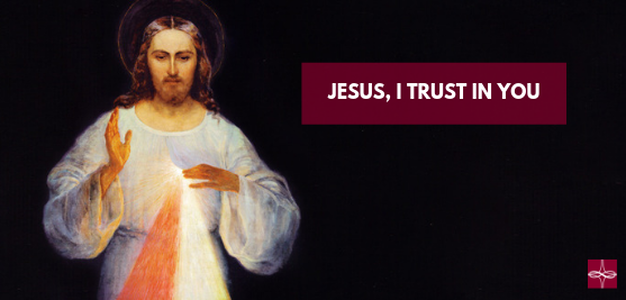



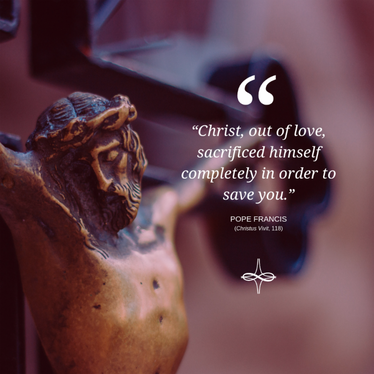
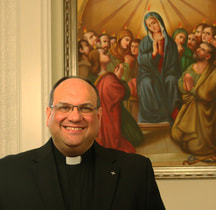
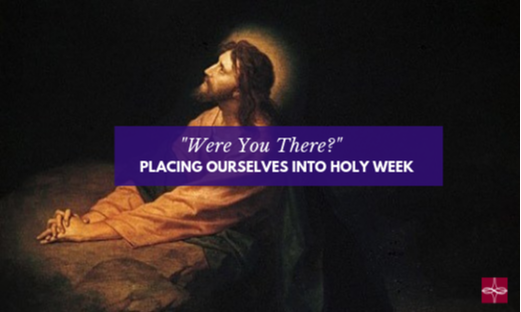

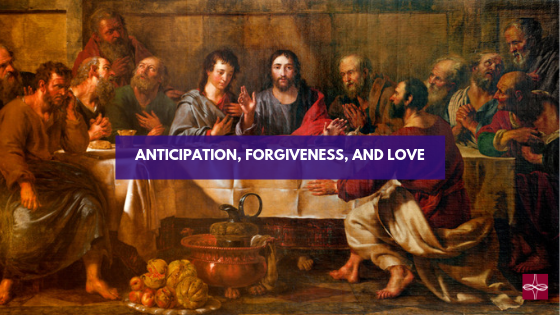

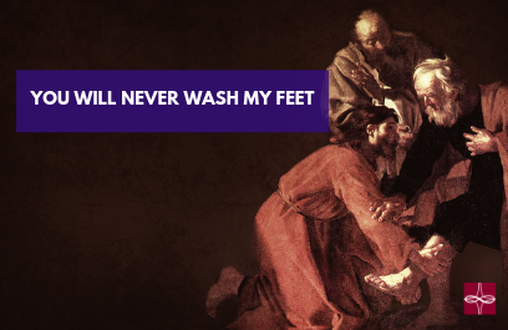

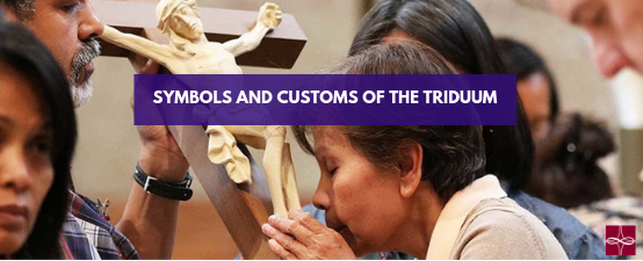



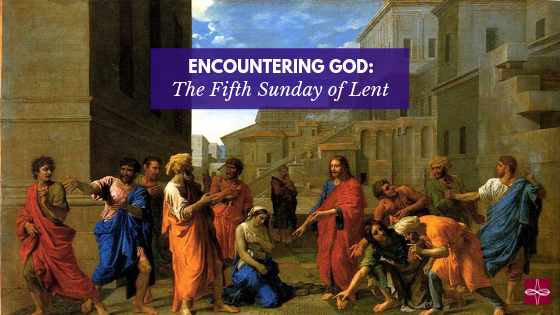
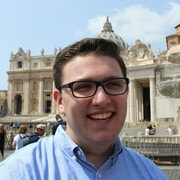
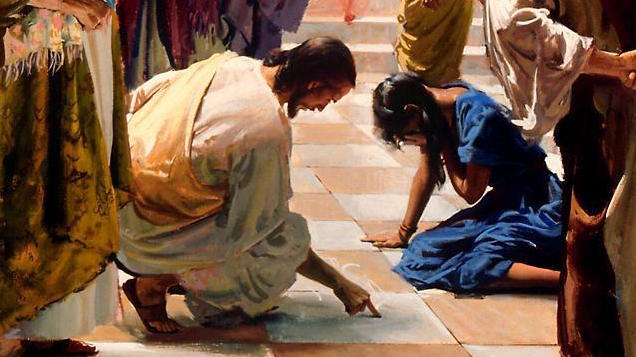
 RSS Feed
RSS Feed